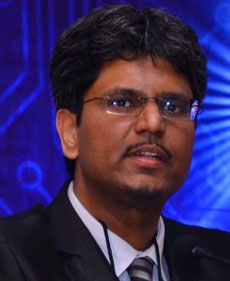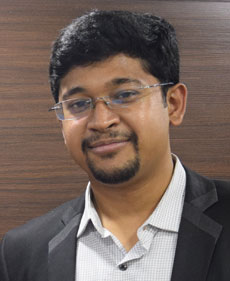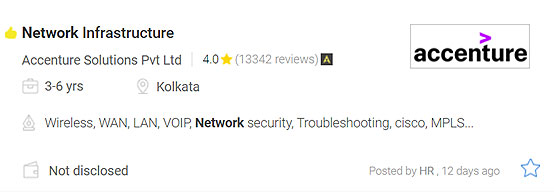A computer network is a digital telecommunications network which allows nodes to share resources. In computer networks, computing devices exchange data with each other using connections (data links) between nodes. These data links are established over cable media such as twisted pair or fiber-optic cables, and wireless media such as Wi-Fi. Network computer devices that originate, route and terminate the data are called network nodes. Nodes are generally identified by network addresses, and can include hosts such as personal computers, phones, and servers, as well as networking hardware such as routers and switches. Two such devices can be said to be networked together when one device is able to exchange information with the other device, whether or not they have a direct connection to each other. In most cases, application-specific communications protocols are layered (i.e. carried as payload) over other more general communications protocols. This formidable collection of information technology requires skilled network management to keep it all running reliably.
Why enroll in Diploma in Networking?
It's
Innovative
Be a part of a
Global Network
Duration
12 months - 4 days in a week
Eligibility
The prerequisite of the course is 10+2.
Course Fees
Class Room Training
Rs.72,000/- (Paid one time)
Rs.80,000/- (Paid in instalment)
Inclusive of all taxes
Online Training
Rs.82,000/-
Inclusive of all taxes
What You Will Get?
12 Months
of in depth training by the best cyber security experts
Study Materials
Diploma in Networking
Certificate of Completion after examination and alumni status
Course Benefits:
- Plenty of job opportunities as networking professionals are lesser in number than the demand
- Detailed mathematical and technical knowledge is not needed
- Innovation is the key to success here
- There is an opportunity to connect with a global computer networking community
Course Details
- The duration of the course is 11 months at 5 days per week
- The course fee is Rs.72,000/- at one time payment for classroom coaching and Rs.80,000/- for multiple instalments. For online payment the fee is Rs.82,000/-
- The course is administered in theory as well as practice
| Paper code | Title | Lecture | Marks | Internal | Theory | Lab |
|---|---|---|---|---|---|---|
| Paper code: DN-01 | Title: Computer Hardware | Lecture: 40 | Marks: 100 | Internal: 20 | Theory: 40 | Lab: 40 |
| Paper code: DN-02 | Title: C Programing | Lecture: 40 | Marks: 100 | Internal: 20 | Theory: 40 | Lab: 40 |
| Paper code: DN-03 | Title: Basic Networking | Lecture: 40 | Marks: 100 | Internal: 20 | Theory: 40 | Lab: 40 |
| Paper code: DN-04 | Title: Python Programing | Lecture: 40 | Marks: 100 | Internal: 20 | Theory: 40 | Lab: 40 |
| Paper code: DN-05 | Title: English Communication & Soft-Skill - Module 1 | Lecture: 40 | Marks: 100 | Internal: 20 | Theory: 40 | Lab: 40 |
| Paper code: DN-06 | Title: Project | Lecture: 8 Weeks | Marks: 100 |
| Paper code | Title | Lecture | Marks | Internal | Theory | Lab |
|---|---|---|---|---|---|---|
| Paper code: DN-07 | Title: RDBMS | Lecture: 40 | Marks: 100 | Internal: 20 | Theory: 20 | Lab: 60 |
| Paper code: DN-08 | Title: Advance Networking | Lecture: 40 | Marks: 100 | Internal: 20 | Theory: 20 | Lab: 60 |
| Paper code: DN-09 | Title: Linux 8.0 | Lecture: 40 | Marks: 100 | Internal: 20 | Theory: 20 | Lab: 60 |
| Paper code: DN-10 | Title: Firewall Administration | Lecture: 40 | Marks: 100 | Internal: 20 | Theory: 20 | Lab: 60 |
| Paper code: DN-11 | Title: English Communication & Soft-Skill - Module 2 | Lecture: 40 | Marks: 100 | Internal: 20 | Theory: 20 | Lab: 60 |
| Paper code: DN-12 | Title: Project | Lecture: 8 Weeks | Marks: 100 |
Hacking Tutorials
Read All Tutorials »
Building a career in Digital Forensics - How promising is the future? A thorough career guide
Read Details »Hacking Videos
Explore All Videos »How to Hiding Your Secret File using Steganography?
View On Youtube »Enroll Now
Fields marked with * are mandatory.
Ratings & Reviews
Job Prospects & Job Sources
Networking professionals are eligible for a wide array of industries like computer system design, telecommunication firms, schools, hospitals and government agencies. Job prospects are excellent in any industry as the profession of network specialists is speculated to increase by 10% from 2018 to 2028.
Candidates are required to be experienced technicians and be familiar with a wide variety of network types and providers. A formal certificate of program in computer science or information systems is required for advanced positions in organizations. An average salary of 50,000 to 60,000 monthly is expected for networking experts in India.
FAQs
The syllabus of the course includes Computer Hardware, C Programming, Basic Networking, Python Programming, RDBMS, Advance Networking, Linux 8.0, Firewall and Projects.
The duration of the course is 11 months at 5 classes per week.
The course is administered in theory as well as practice.
The prerequisite of the course is 10+2.
Networking professionals are eligible for a wide array of industries like computer system design, telecommunication firms, schools, hospitals and government agencies. Job prospects are excellent in any industry as the profession of network specialists is speculated to increase by 10% from 2018 to 2028.
The next courses that can be done after this one is Diploma in Cyber Security (Ethical Hacking) and Advanced Diploma in Cyber Security (Ethical Hacking).
Member of:









